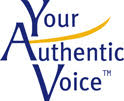 You’ve seen it. The speaker is making a point.
You’ve seen it. The speaker is making a point.
Someone who clearly disagrees decides to disrupt the event by shouting out some disparaging or profane comment. Or by throwing a shoe. Or by storming the stage.
I hope you haven’t experienced this. I haven’t. I have experienced other kinds of challenging situations. While it doesn’t happen often, when it does, it can take you by surprise.
If you’re going to be in front of an audience of any size, you may have to handle one of those unexpected speaking events — those “what if’s.” So, to prepare you for that possibility, here are ideas on how you can negotiate some of those what if’s:
What if…
Someone walks out?
Acknowledge that person warmly with a smile and keep on keepin’ on with your audience.
Someone starts dominating the conversation?
Acknowledge that person, thank him or her for the comments, then put your focus on another section of the audience. Use your body language to gently reorient your audience away from this person. If the individual continues to ask for your attention, address him or her briefly and ask if you can speak afterwards so you can continue give everyone a chance to participate.
Someone refutes the accuracy or validity of your information?
Don’t engage in a debate. It’s not about proving yourself or being right or wrong, but about providing information. Avoid showing any displeasure with his or her actions. Answer the question if possible, and make sure you stay on topic rather than go off on a tangent. Offer to address the concern after the program and if you’ve shared inaccurate information, to correct it.
Someone makes a critical comment about you or your subject matter?
Acknowledge the individual and ask for his or her cooperation so you can continue the program. If that doesn’t work, ask the group to weigh in with a comment like,” That’s an interesting comment. Do you mind if I ask the others if they are receiving value or would prefer to move on to another subject?”
Someone starts having a side conversation during your presentation?
This is tough one. I might focus on the group and try to say something humorous, but not at their expense, to bring them back into the fold. Humor is a great ice breaker. If it continues, I recommend taking a short break and having a private conversation. I inquire into what they might need and ask for their cooperation, for the benefit of the group.
The most important thing is to avoid getting drawn into a conflict or adversarial relationship. While it can be challenging, knowing that most people want to have a good experience, and might be unaware of the impact of their actions, helps. For those who are less cooperative, remind yourself that what people do or say represents who they are, not who you are. You’re there to meet the needs of your client and/or your audience, including these folks. Taking action to ensure they have the best chance to benefit from your presentation is your number one job.
And, funny thing, when you handle these situations with grace, integrity and authenticity, they become opportunities for you to shine even more. You can develop an even deeper level of trust and respect for the way you walked the group through what could be a challenging situation.

Leave A Comment